5 Modern Luxuries People In The Future Will Find Totally Stupid

Tech evolves, and society evolves with it. Did you know that rich people would rent a single pineapple to display at parties, as pineapples were far too expensive to buy outright and eat? What was rare and prized one day becomes mundane the next. And looking back, people are shocked at what their ancestors valued. Our own grandchildren will feel the same way about our own luxuries. Stuff like ...
Expensive Cars
Self-driving cars, you've hopefully already heard, are the way of the future. They'll ultimately be much safer than what we have now, and much more efficient, but let's not forget that they'll also take much less work to operate. Once people are used to them, driving a car yourself -- which every kid now looks forward to being able to do -- will be looked back on as tedious manual labor.
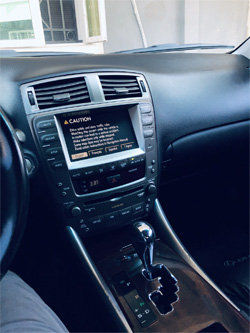
"If you're driving, it's not automatic."
Our descendants won't think driving cars ourselves was weird, exactly. Labor precedes automation; that's normal. But they will find weird how much cultural importance we bestowed on this chore, and how people spent tens of thousands of dollars to make sure their tool of manual labor was the most impressive around.
"But you yourself spend tens of thousands on your self-driving car!" you might tell your time-traveling future friend, indignant, but they won't understand. To them, their car is something they relax in, and they pay for the benefit of being transported. But if you drive the car yourself, that's work (and in fact some 21st-century people did drive for a living), not something you should spend any more than necessary on. "Did you guys also have bejeweled washboards before you invented the washing machine?" they'll wonder. "Did you compete to see who could afford the coolest-looking cotton gin?"
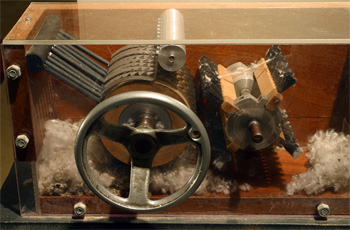
People with better imaginations might cut us more slack. "Driving must have been recreational, right?" they'll say. "People enjoyed driving, as they might enjoy taking out a yacht?" Well, sometimes. But generally, no. Mostly, we'd commute, and we didn't like that at all, but since we had to do it, we spent big to look good while doing so. "Or driving was more of a game then?" they'll suggest. "You wanted the best car so you could race against other people?" Again, mostly no. We did pay premiums for cars that went extra fast, but all cars were forbidden from going anywhere near their top speeds, by law.
And on the subject of transportation ...
Flying First Class
As we've covered, planes have been stuck at the same speed for a long time. They can't get incrementally faster because that pushes them into the most dangerous speed range. Much faster would be safer, but we'd need a sudden tech leap to get there, such as to the hypersonic aircraft Boeing has proposed. Planes like that will fly three times higher than planes today, have no windows to avoid glass exploding inwards, and could go anywhere on Earth in three hours. Today's long flights (say, 17 hours from Sydney to LAX) will seem ludicrous to someone used to those.
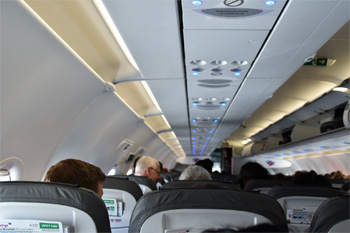
But the really weird part to them would be those of us who spent an extra $16,000 to feel slightly more fancy while suffering through the same lengthy flight. These passengers, as our descendants will note, weren't the ultra-wealthy, who flew private -- these were people who had to choose between various luxuries, and they picked this one. It's a bit like our spending money to drive cars, except worse, because cars are all about prestige in others' eyes (no one would buy a $50,000 car were it an unknown brand and no one could see it), which will always be relatable, while flying first class is totally a personal indulgence. So, what coveted comforts did this first class travel offer?
"Well, you'd get to order off a long menu instead of accepting set meals," you'd explain. Really? asks your hypothetical friend from the future. Like, you do in any crappy restaurant? That made it worth it? "Oh, but this was really good food!" you'd insist. Your friend rolls their eyes. If you're into food, you could have bought dozens of meals much better than anything the plane offered for the extra you paid.
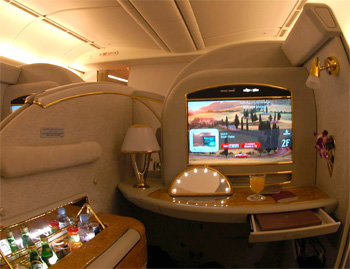
You'd next say, "Yes, but first class also offered extra legroom!" And then, seeing how this doesn't at all impress your friend, who is sitting on a park bench and has infinite legroom for free, you add, "And then in the really expensive flights, they'd let you lie down FULLY FLAT!" This only confuses your friend, who knows a bit about 21st-century life. They know ramshackle trains in developing countries let people sleep fully flat, and tickets cost only a few dollars each. They know the cheapest hostels in the world let people sleep fully flat. How was sleeping flat considered a luxury?
"Because those hotels and trains weren't FLYING THROUGH THE AIR!!" you'd insist. But that doesn't convince them. Because they know that simply flying through the air could cost one-twentieth of the first class price.

As with everything we're talking about today, I'm not trying to convince you you're dumb if you want these things now. Offer me a free first class ticket, and I'll grab it and have a great time, not scoff and say I'd be equally comfortable in the overhead bin. I'm just saying the time may come that the inconveniences we now barely notice will appear so great that comfortable slippers and a deluxe top hat will do nothing to make up for them. On the other hand, not all kinds of flying will lose their charm to the people of the future ...
Luxury Cruises
One day, we'll be taking regular shuttles to Mars. These flights will in some ways be more comfortable than commercial air travel today, even first class (you can't confine someone to a seat or bunk for months at a time), but it won't be an easy trip. It will be an adventure. It'll be more like ships crossing the ocean to the New World than jaunts by plane. And future astronauts will probably look back at those who sailed on ships as their predecessors, respecting them as explorers who broke new ground. Unless, that is, we're talking about people who sailed on cruises for fun, in the 21st century.
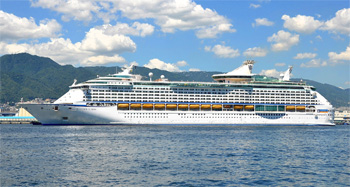
"You spent weeks in a ship?" they'd ask. "When you could have flown anywhere you liked? Do you think I'd take a slow ship to Mars if I could just zoom there in one-fiftieth the time?!" No, no, you'd explain. A luxury cruise wasn't about getting from one place to another. It was about the things you could do on the ship. There were shows. And casinos. And buffets. "But you could do all that on land as well!" they'll respond. "And so much more! For so much cheaper!"
But the experience of being on a boat was cool, you'd say. "Oh," says your friend, a little more interested. "So, did you get to pilot the ship? Or, you'd spend a lot of the time swimming outside it?" No, you'd admit. You were almost always indoors. And the ship was so big, you often couldn't tell you were on the water at all.

"And how did you work out water recycling, and air recycling? Those are major issues when we manage a space shuttle." Well, air recycling was unnecessary of course, though the air on cruises did get as bad as the most polluted cities in the world. As for water recycling, no. We'd dump concentrated untreated waste, and get fined tens of millions of dollars for doing so. "You jerks," says your friend. "Do you even know how many years it took us to clean up those oceans?!"
I guess you don't need future knowledge to say cruises aren't that great. At least today, though, sea distances feel far enough that there's some novelty to the voyages. Again, I'm not saying everyone's nuts to enjoy this stuff now -- even if I'd skip a cruise in favor of traveling through actual places, old people sure seem to get a kick out of it. But one day, looking back, cruises will seem as nuts as spending $10k to be locked in a hotel that, over the course of a week, moves from 72nd Street to 59th.
A Nice Suit
I have long argued for abolishing clothes, and I look forward to proud nudity becoming standard. But even if that day never comes, fashion will undergo many changes over time. It always does. So our descendants will look at our clothing choices with an impartial and critical eye. Oh, they'll probably still accept the concept of, say, a brand name raising a piece's value tenfold without changing its quality -- that's just signaling your wealth. Even without clothes, we'd find some other way to do that. But they'll be confused by the type of clothes that we valued most.

A suit jacket will look like a very useful article of clothing for protecting us from the elements, until they learn we wore these even when it was hot. "Why?" they'll ask. "Why not instead wear a tight shirt, to show off your muscles?" (To repeat, I have very specific ideas about how the future will appreciate the human body.) Once they get over that, they'll ask more about suits and learn that many of us wore them routinely, at work.
"Oh, so they were work clothes," they'll say. "Like overalls. You wore work clothes to weddings?" No, they were formalwear, which meant wearing them on special occasions and also, for some people, wearing them on the most everyday occasions of all. Pressed further, we'll explain we also had extra formal jackets, called tuxedos, that were only for formal occasions (unless you work in the food services industry, in which case they are indeed work clothes). But most people didn't own tuxedos. They'd rent them. Yes, even movie stars would rent these instead of buying them.

"Okay, now you're just making things up."
Technology will certainly improve clothing. Future clothing will be wrinkle-free, so our descendants will laugh picturing us ironing. Well-off people prepared for elegant events by bending over their best clothes wearing only their underwear and removed the crumples through pushing hard with a hot piece of heavy metal. Future clothing will also resist stains. That'll make today's clothes absorbing our body fluids sound disgusting. People spent so much money on these expensive shirts and trousers and then basically used them as Kleenex?
Plus, future people will look back specifically at women's clothing, but they'll see nothing weird there, because women's clothing makes perfect sense.
Golf
One theory says that as population rises, land will become scarcer, and golf courses will cease to exist. I don't know if that's true -- population might stabilize after growing just a couple billion more, leaving us plenty of space -- but here's my theory of why luxury golf may cease to exist anyway. See, golf became expensive only because it required those dedicated large areas and specialized equipment. Equally fun games require only seven broken tiles you'd find on the side of the road.
As soon as we stopped making handcrafted clubs from rare foreign wood in the middle of the 19th century, and people realized they could share courses, golf stopped being only a rich man's game. It's just that rich people were so used to playing it that the golf industry went on catering to them, with even more expensive equipment and with exclusive resorts. Go look up the best public golf course near you, and you may be surprised to see you can reserve a private tee time for a group of friends and even hire a caddy for maybe cheaper than all of you going to the movies.

"Yeah," you might note, "but rich people don't want to play on public courses. They want exclusive golf courses!" Right, but that's when we run into the circular logic of all status symbols. Some golfers genuinely love golf but others just love the exclusivity, and if it's exclusivity they want, you'd think they could seek out something more interesting. Activities like golf don't work like purchases -- you can't just buy it on top of everything else. It costs time and effort. Find any three millionaires on some luxurious golf course, and I bet one of them is secretly wishing the Seychelles had exclusive basketball courts instead, while another is bitter because he can't find a single nightclub anymore that plays good disco music.
And so I boldly say the golf house of cards will collapse one day when a bolt of enlightenment from heaven crashes down upon us. The rich will move on to something else, something not nearly as boring. Our descendants will then look back and wonder which rich people of old were just pretending to ever like the game. They'll read about, say, a 74-year-old overweight man. He struggled with inadequacy his whole life, people long made fun of his small penis, and he was aware that his tastes -- whether in food, decor, or entertainment -- were what the elites deem trashy. But he did have money. And wealthy people golfed.

So he golfed his whole life. He forged lifelong friendships with caddies. When the federal government sold off a proposed winter residence for the president, he managed to buy it along with its golf course, and he opened his own bigger golf course elsewhere in Palm Beach. Finally, despite his best efforts, he ended up becoming president himself. At every opportunity, he then left the White House. To golf.
He relished getting away from his responsibilities, and he felt most at ease in his private sanctum. However, he didn't actually enjoy physical activity. In fact, he weirdly thought exertion of any kind brings you closer to death. Some people said he was good at golf, but some people were liars; he resorted to cheating and once hit himself in the head with his own club. He ended up with so much money and power that his leisure options should have been limitless -- or, he could have simply spent his free hours mingling with his fans, who would shower him with adoration.
But he'd been taught that the desirable thing to do is to golf. So he'd head to the fairway, yet again. And he'd swing.
Follow Ryan Menezes on Twitter for more stuff no one should see.